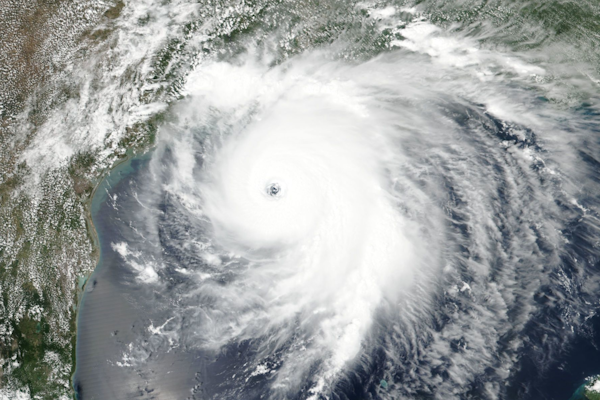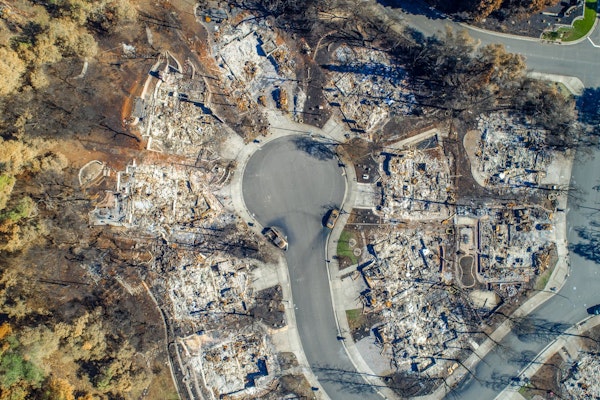
U.S. Cyber Insurance Premiums Experience First-Ever Decline Amid Pricing Adjustments
U.S. cyber insurance premiums declined by 2.3% in 2024, driven by rate reductions even as claims frequency rose, highlighting evolving market risks and pricing trends.
July 2, 2025
Insurance Industry
Liability
Risk Management
Technology

How Water Leak Sensors Are Transforming Insurance Economics
Bolt’s successful integration of IoT water sensors with homeowner policies significantly reduces water damage claims, reshaping insurance profitability.
July 2, 2025
Property
Risk Management
Technology
Underwriting

Scattered Spider Cyber Threat Targets US Airline and Transport Industries
The FBI issues urgent warnings as the Scattered Spider cybercriminal group pivots its attacks from UK retailers to airlines and transport organizations across the US.
June 30, 2025
Education & Training
Liability
Risk Management
Technology

Loss of Military Satellite Data May Affect Hurricane Forecast Accuracy
Critical satellite data used for predicting rapid hurricane intensification will end June 30, potentially complicating forecasts during peak hurricane season.
June 30, 2025
Catastrophe
Property
Risk Management
Technology

Italian Executives Receive Lengthy Prison Terms for PFAS Pollution
Executives of a chemical plant in Italy face significant jail sentences after court finds them responsible for extensive PFAS contamination affecting drinking water.
June 30, 2025
Legislation & Regulation
Liability
Litigation
Risk Management

Cyber Risk and Technology Trends Reshaping Business Resilience in 2025
Executives’ cyber risk awareness is climbing, yet a misplaced confidence in cyber resilience persists amid escalating threats and geopolitical instability.
June 30, 2025
Legislation & Regulation
Liability
Risk Management
Technology
California

Modernizing Insurance Claims Payment Infrastructure for Greater Efficiency and Trust
Research reveals that fragmented back-end financial systems hinder timely claims payments and increase risks, highlighting the need for integrated, real-time solutions.
June 30, 2025
Education & Training
Insurance Industry
Risk Management
Technology

Federal Judge Rules Anthropic’s Book Use Fair but Piracy Still Faces Penalty
A San Francisco federal judge declares Anthropic’s AI book training fair use, yet rules storing millions of pirated copies illegal, setting stage for potential damages.
June 25, 2025
Legislation & Regulation
Litigation
Risk Management
Technology
California

How PFAS Influence Environmental Liability Risks in Construction Projects
Westfield Specialty’s Dennis Willette explores how PFAS contaminants shape environmental liability coverage in construction and why contractors need this insurance.
June 25, 2025
Legislation & Regulation
Liability
Property
Risk Management

Wildfires and Storms Drive Record Claim Severity in Early 2025 as Volume Hits Five-Year Low
Despite costly California wildfires and severe storms in Texas and the Midwest, property claim volume in Q1 2025 dropped to its lowest level in five years, Verisk reports.
June 24, 2025
Catastrophe
Insurance Industry
Property
Risk Management

AI and Value-Based Care Are Transforming Workers’ Comp Claims Management
Artificial intelligence and outcome-focused care models are streamlining workers’ compensation by improving triage, reducing costs, and prioritizing long-term recovery outcomes.
June 24, 2025
Life & Health
Risk Management
Technology
Workers' Compensation
Ohio

Why Florida, Texas, and California Lead the Nation in Lightning Insurance Claims
Florida, Texas, and California consistently rank highest for lightning-related insurance claims due to storm frequency, surge damage, and wildfire-triggered losses.
June 24, 2025
Catastrophe
Insurance Industry
Property
Risk Management
California
Florida
Texas

Colorado State University Predicts Above Normal 2025 Atlantic Hurricane Season
The 2025 Atlantic hurricane season is projected to be above-average with 17 named storms, nine hurricanes and four major hurricanes, increasing landfall risks along U.S. and Caribbean coasts.
June 19, 2025
Catastrophe
Insurance Industry
Property
Risk Management
Florida
Texas

Revolutionizing Catastrophe Modeling with AI for Insurers
Insurers can modernize CAT modeling by integrating AI-driven data capture, cleansing, enrichment, and analysis to deliver dynamic, real-time risk assessments that enhance underwriting and portfolio decisions.
June 19, 2025
Catastrophe
Insurance Industry
Risk Management
Technology

Claims Decline as Replacement Costs Skyrocket in Q1 2025
In Q1 2025, U.S. and Canadian property claims hit a five-year low even as average replacement costs surged 46 percent year-over-year, led by California wildfire losses and rising reconstruction expenses.
June 19, 2025
Catastrophe
Legislation & Regulation
Property
Risk Management





